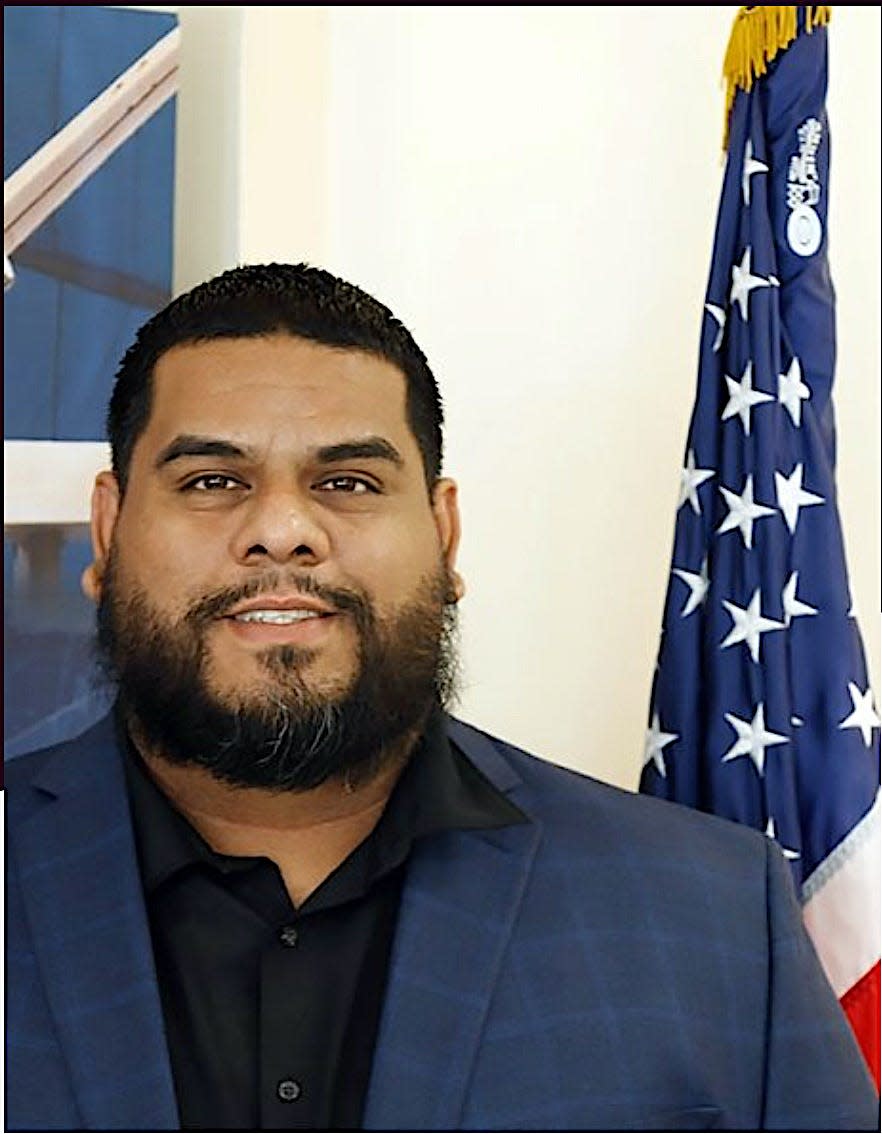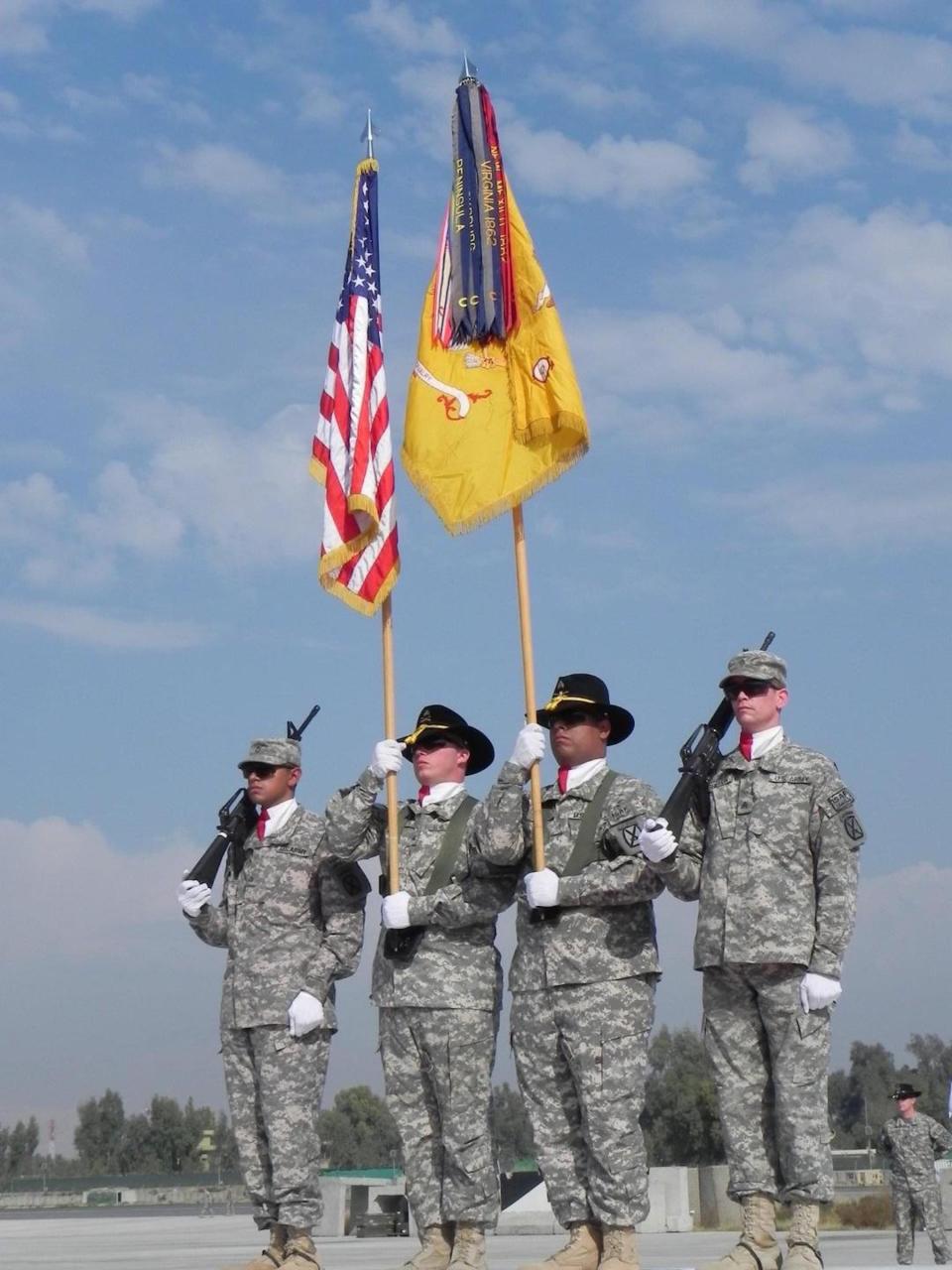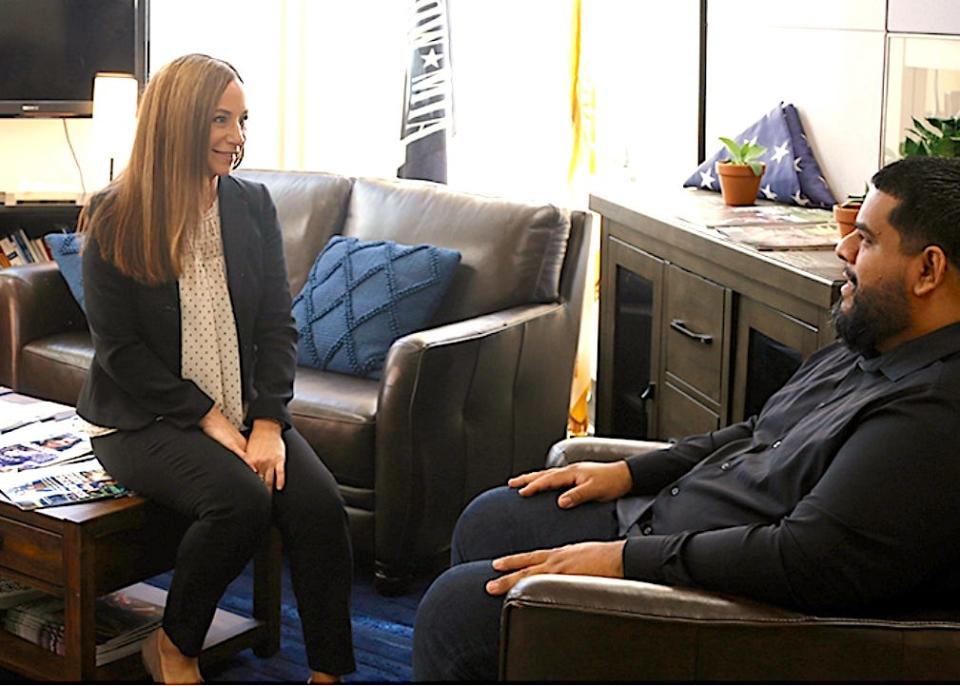Veterans Voice: An advocate for others with service-related injuries
Suck it up!
Walk it off!
Don’t be a wimp!
How many veterans have heard a superior say that during their military service? How many were discouraged from going on sick call when they knew something did not feel right?
And how many now can’t get needed medical care from the Veterans Administration because they can’t prove their condition is service-connected?
Alex Ortiz wants to make solving such problems his life’s work.

Ortiz, 37, is a disabled Army veteran who served for seven years (2006-2013) as a wheeled vehicle mechanic, including tours in Iraq and Afghanistan with the 10th Combat Aviation Brigade. He was medically retired with spinal cord damage and traumatic brain injury from noncombat accidents.
He earned a bachelor's degree in accounting from Rhode Island College on May 14, making the dean’s list, eight years after he began his college work at Grand Canyon University in Arizona. Ortiz starts law school July 29 at Inter American University School of Law in San Juan, Puerto Rico.
He feels that a law degree, utilized through a nonprofit he hopes to establish, will help him fight for veterans who can't afford legal representation. He hopes this nonprofit could somehow work with the Transition Assistance Program, the official Department of Defense initiative designed to help ease the military-civilian transition.
Ortiz contends, “Someone needs to talk to guys while they are still in, and tell them, 'Do go to sick call, do tell them that your knee hurts, to make sure it's properly documented.' That’s not trying to game the system, it’s protecting something that you have actually earned.”
Veterans Voice: Military experience made this former airman a better student
Ortiz was the very active president of RIC's chapter of the Student Veterans of America. He was one of 10 finalists for the 2022 National Student Veteran of the Year award, and one of 33 nationwide to earn a Student Veteran Leadership Award from G.I. Jobs, a publication distributed to transitioning service members, veterans and their families.
These accomplishments have spurred him to pursue a career helping veterans get the benefits they deserve.
Proving injuries are service related
“At RIC there were student veterans who said, ‘I never went to sick call because they would tell me I was weak’," said Ortiz. “So instead, they fought through their aches and pains, some of which have become debilitating as they age.
“These injuries aren’t deemed to be service-connected because they’re not reflected in their medical records.”
Fortunately, the VA recognizes the problem. Since 2000, there are procedures for addressing it. If no medical records exist, the VA also considers evidence such as “buddy letters,” written by fellow service members or even relatives, who can testify an injury or disease stemmed from military service.
If the injuries or conditions are consistent with other veterans who did similar jobs in similar locations, it is also possible to connect the dots.
The problem is, some veterans don’t know about this avenue. For others, the paperwork can be off-putting.
Ortiz says, “I want to be an advocate for those veterans to ensure they get the treatment and benefits they deserve.”
He also thinks his own veteran status will help.
“Veterans are more inclined to listen to other veterans who have been through the process," he said. "I can help with the hassle.”
Veterans Voice: Greenhouse a source of comfort, therapy for residents of Bristol vets home
National effort to revise Forever GI Bill
At RIC, Ortiz was active in student government and was one of five students nationwide to be named a Student Veterans of America/VFW Legislative Fellow.
He spent about four months researching and developing the case for amending the Forever GI Bill to make it more inclusive.
Under the earlier Post-9/11 G.I. Bill, the government pays tuition, a housing allowance and a stipend for textbooks and supplies for eligible veterans attending four-year public colleges and universities. However, it included a 15-year time limit for use of the benefits.
The 2017 Forever GI Bill eliminated the “use-it-or-lose-it” provision, but only for service members discharged on or after Jan. 1, 2013.
Ortiz asks, “Why 2013? That means people who fought in Desert Storm or the Gulf War aren’t eligible if they left the military in 2008, 2010 or 2012. That makes no sense.”
He wants Congress to eliminate the 15-year time constraint for any GI discharged after September 2001.
“I know from personal experience,” Ortiz says. “My GI benefits ran out before I came to Rhode Island College."
Through the VFW, he lobbied congressional offices seeking support. He presented a one-page brief summarizing his research and was able to speak for five minutes on the issue.
Ortiz said he hoped Sen. Jack Reed, D-RI, who is chairman of the Senate Armed Services Committee, will sponsor the amendment.
Army offers a roadmap for the future
Ortiz was born in Brooklyn to a Peruvian dad and a Puerto Rican mom. When he was four, he and his mother moved to Puerto Rico. He shuttled back and forth to Brooklyn, attending three years of grammar school in New York.
He went to middle school and high school in Puerto Rico, and then attended a vocational college to become an automotive technician.
Frustrated by low pay and few prospects for the future, Ortiz saw an “Army of One” TV commercial in 2006.
“I was not getting anywhere,” he said. “So I spoke with a recruiter and took the tests. They pushed me hard to join, because my scores were the highest they had seen in a while. Where I lived, not a lot of people could speak English.”
Two months later he was off to Fort Jackson, South Carolina, for basic training and vehicle mechanic school. After an assignment in Colorado, he ended up with the 6th Squadron, 6th Cavalry Regiment of the 10th Combat Aviation Brigade at Fort Drum, New York.
“We were ordered to Iraq in 2008, and they scheduled me for a three-week vehicle recovery course before we deployed. If a heavy vehicle broke down, I would be the only person in the battalion certified to operate the recovery equipment and rescue the vehicle. So it was really mission-critical."
During the course, his father died.
If he left the course to be with his family, he would have had to recycle into another class— and there was no time to do that before they deployed.
“I decided not to go to my father's funeral so I could become that asset for my unit,” he said.
“That decision weighed on me, but I still believe it was the right decision. I took comfort from the fact that I knew my dad would have wanted me to stay in the course.“

In November 2008, 6-6 CAV deployed to Kirkuk in northern Iraq in support of Operation Iraqi Freedom.
His commitment did not go unnoticed. He earned his sergeant’s stripes by the end of his first three-year enlistment, and he re-enlisted while in Iraq.
After returning home in June 2009, his unit was reorganized as Task Force Six Shooters and in October 2010 deployed to Afghanistan in support of Operation Enduring Freedom XI.
After the year-long deployment, Ortiz began feeling the effects of injuries incurred several years earlier. Medical tests revealed nerve damage and delayed-onset traumatic brain injuries that were severe enough for him to be medically retired in 2013.
Transition to civilian life not easy
In 2014 he moved to Arizona and started studying accounting at Grand Canyon University. While there, he worked as an audit and tax intern for the City of Phoenix. He was close to completion when his mother needed urgent surgery. He decided to move back to Puerto Rico to take care of her.
While there he met Lixianne Flores, the woman who would become his wife.
“She had been born in Puerto Rico but was raised in Rhode Island and spent most of her life here,” said Ortiz.
“She was a successful businesswoman who went back to Puerto Rico to manage her dad's travel agency. That’s when I met her.”
During Hurricane Maria, in 2017, they learned she was pregnant. Through her travel contacts, they were able to get her back to New York. In 2018 their son Roman was born in Rhode Island.
They decided to return to Puerto Rico and run the travel agency, but in 2020 Puerto Rico was rocked by earthquakes, followed by the pandemic. They decided to close the business, which was still profitable.
They moved back to Rhode Island in May 2020.
“My wife found a job working remotely,” said Ortiz. “I wasn’t sure what to do, and she said, ‘Just finish your degree and start there.’”
“I inquired first to URI, but they never got back to me. Then I reached out to Rhode Island College. Lisa Levasseur, the veterans program coordinator, replied within one day.
“I said, ‘You know what? You were the first to answer, so I guess I'm going to RIC.'”
Ortiz knew nothing about Rhode Island College.

“Lisa pretty much guided me through the whole process, even though it was just a few days before classes started,” he said.
Ortiz thinks very highly of the work Levasseur performs for veterans at the school.
Levasseur is equally impressed with Ortiz.
She emailed: “I have been impressed with his work ethic, tenacity and intelligence. It is not often you meet someone who leaves such a lasting impression."
Ortiz is well on his way to building a successful future for himself and his family. But he is the first to admit he misses the military.
“I would return to the Army in a heartbeat if it were possible,” he said in a RIC website interview. “What I miss most is the brotherhood.”
“No matter your race or ethnicity,” Ortiz says, “I knew that when things got ugly you would have my back and I would have yours. If we did that, we’d probably make it out alive. That kind of brotherhood doesn’t exist in civilian life.”
Calendar
Monday, 9:30 a.m. to 4 p.m., a Veterans Benefits Administration claims representative will be at the Providence Vet Center to assist with filing a service connection claim. Schedule an appointment online at vets.force.com/VAVERA. Select “Warwick Vet Center” (zip code 02889). Walk-ins are welcome but may experience a wait.
July 25, 6 p.m., U.S. Rep. David Cicilline will host his annual veterans community conversation at Slater Park Pavilion, 825 Armistice Blvd., Pawtucket. The event will feature a BBQ dinner for veterans, active servicemembers and their families. Representatives from the Department of Veterans Affairs and the Rhode Island Office of Veterans Services will be available to answer questions. All attendees must RSVP in advance. Spots will be reserved on a first-come, first-served basis. You can sign up online here, or by calling Cicilline’s Pawtucket office, (401) 729-5600, or by emailing CicillineRSVP@mail.house.gov.
Mondays, 4 to 8:30 p.m., Narragansett Bow Hunters, 1531 Ten Rod Rd., North Kingstown, offering an opportunity to learn archery at no charge. Everything you need will be provided (bows, arrows, arm guards, targets, finger tabs, and instruction). No RSVP needed. For further information call (401) 295-7228 or visit narragansettbowhunters.org.
To report the outcome of a previous activity, or add a future event to our calendar, email the details (including a contact name and phone number/ email address) to veteranscolumn@providencejournal.com
This article originally appeared on The Providence Journal: RI veteran advocates for others with service-related injuries

